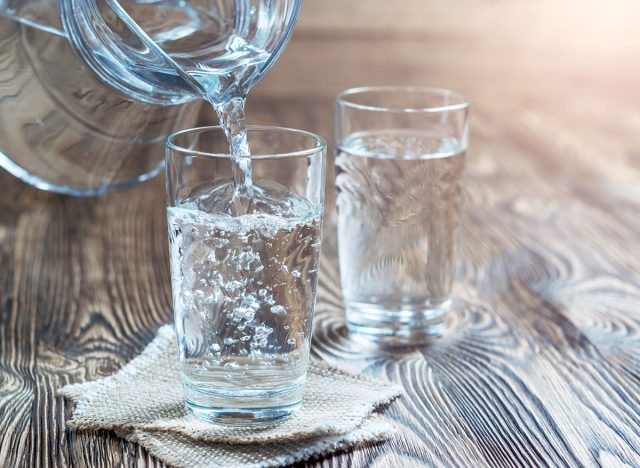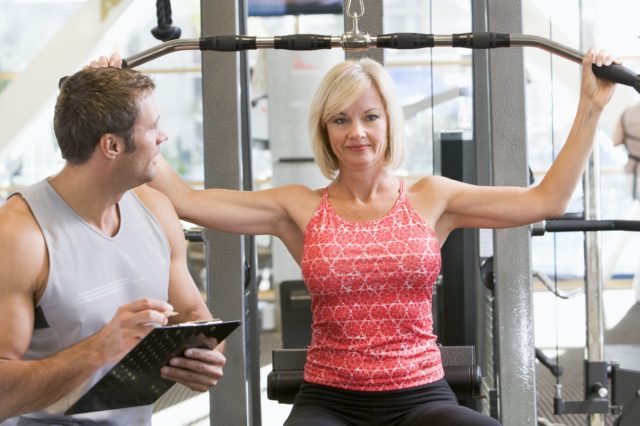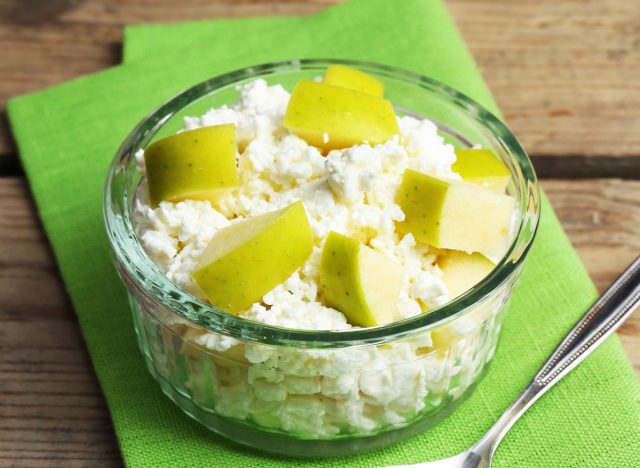4 Morning Rituals a Geriatric Expert Swears By To Reverse Aging After 50

You may be surprised to learn what defines “geriatric.” There’s no concrete rule, but under generally healthy conditions, geriatric typically refers to individuals over the age of 65, largely because individuals are eligible to receive Medicare benefits at that point. If you’re approaching that age bracket, it’s important to consider adding several anti-aging habits to your lifestyle and wellness routine. We reached out to Dr. Erika Hutz, geriatric medicine physician at Endeavor Health, to learn exactly what her anti-aging routine entails—all before 9 a.m.
When your goal is to remain “young,” you need to drink sufficient water, exercise on a regular basis, and consume a balanced, healthy diet.
“Consistent exercise, strategic nutrition, and hydration are powerful investments in long-term health, even when time is limited,” Dr. Hutz explains.
Research has proven these wellness habits make a huge difference in holding onto youthfulness, and Dr. Hutz has several.
She Drinks Plenty of Water To Stay Hydrated

“A 2023 study published in eBioMedicine found that individuals with inadequate hydration were more likely to experience accelerated biological aging, develop chronic diseases, and face increased risk of premature mortality,” explains Dr. Hutz.
Everyone needs to drink sufficient water daily for their bodies to function properly. Older individuals have an increased risk of becoming dehydrated because their sense of thirst decreases and their bodies retain less water. In addition, certain medications can cause dehydration.
According to The National Academy of Medicine, males who are 51 and up should consume 13 cups of fluids per day and females within the same age bracket should drink 9 cups daily. This is a general rule of thumb, and you should discuss your personal requirements with your healthcare professional based on your age and weight.
She Carves Out Time To Work Out

Everyone has commitments in each stage of life. When it comes to working out, it’s a priority you must make time for. This is something Dr. Hutz knows well and prioritizes in her early morning routine.
“I wake up at 5:40 a.m. and begin my workout by 6:00 a.m. Before training, I drink 8 to 16 ounces of water to support hydration, which plays a critical role in overall health and cellular function,” Dr. Hutz shares. “My workout consists of 30 minutes of strength training with a professional trainer, focusing on heavy resistance work. Strength training with substantial loads is essential for maintaining bone density, muscle mass, and metabolic health—especially as we age.”
She Eats a Protein-Packed Breakfast

Protein needs to be a key player in your diet, Dr. Hutz tells us.
“The Health ABC Study, published in The American Journal of Clinical Nutrition in 2015, emphasized the importance of adequate protein intake in older adults,” Dr. Hutz explains. “Those with higher protein intake retained more muscle mass and maintained better physical function over time.”
For Dr. Hutz, breakfast is always packed with protein to support muscle recovery and energy levels throughout the morning.
“I alternate between two meals: one cup of cottage cheese with a chopped apple, or an overnight oat smoothie made with 1/3 cup steel-cut oats, 1/2 cup plain Greek yogurt, 1 cup milk, 1 cup frozen strawberries, and 2 tablespoons of chia seeds,” she shares. “I also drink another 16 ounces of water. This routine helps me begin each day with structure, clarity, and a strong nutritional foundation.”
She Prioritizes Skincare and Vitamins

Dr. Hutz also includes skincare and vitamins as part of her morning essentials.
“I complete a consistent skincare routine that includes vitamin C serum, eye cream, moisturizer, and sunscreen. Following that, I take a calcium and vitamin D supplement to further support bone health,” she says.